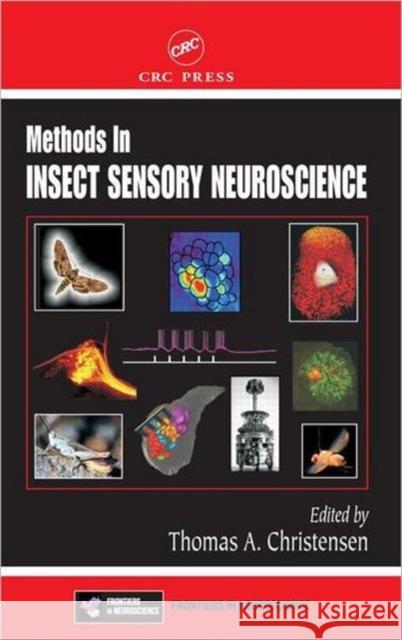Methods in Insect Sensory Neuroscience » książka
Methods in Insect Sensory Neuroscience
ISBN-13: 9780849320248 / Angielski / Twarda / 2004 / 464 str.
Methods in Insect Sensory Neuroscience
ISBN-13: 9780849320248 / Angielski / Twarda / 2004 / 464 str.
(netto: 929,10 VAT: 5%)
Najniższa cena z 30 dni: 881,54
ok. 16-18 dni roboczych.
Darmowa dostawa!
Insects are among the most diverse and adaptable organisms on Earth. They have long been our chief competitors for food and are responsible for spreading devastating afflictions such as malaria and encephalitis. The insects ability to thrive is due in large part to their well-developed sensory systems, which present a host of novel physiological, biochemical, and behavioral attributes that underlie their remarkable feats of sensory performance.
Methods in Insect Neuroscience is the first text to showcase the tremendous variety of methods that are available to study the sensory capabilities of insects. It covers the complete spectrum of sensory modalities in insects, from vision and audition, to chemoreception and multimodal processing. The book is designed to serve as a how to guide for putting into practice a wide range of techniques, including behavioral observation, brain imaging, single- and multi-unit electrophysiology, computer modeling/signal processing, and robotics to address innumerable questions.
A truly multidisciplinary synthesis of neurobiological, behavioral, and computational approaches to sensory-information processing is most likely to yield our richest understanding of the mechanisms that underlie sensation and perception. In that spirit, this book contains chapters by leading neuroethologists, comparative biologists, neuroscientists, computational biologists, geneticists, and bioengineers who have adopted insects as their models. Their hard work and dedication is evident in the quality of detail contained in every chapter.
This book is intended for seasoned neuroscientists looking for state-of-the-art information, as well as discussions on the open-ended questions facing sensory neuroscience today. It is also intended as a primer for newcomers utilizing insects to embark on a study of sensory mechanisms.The opening section provides background information and references about the basic organization of the insect brain and the behavioral strategies used by insects to navigate their complex and varied environments. The latter sections are designed to provide more detailed information about specific sensory modalities and the tools that are used to study them."











